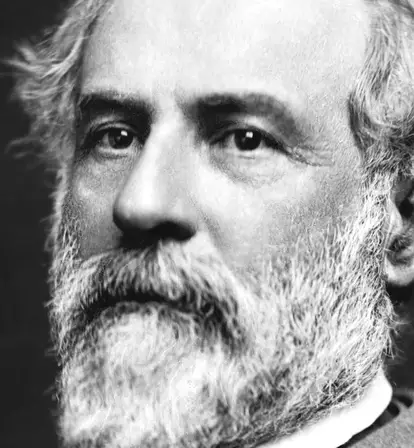Decades after he lost the Civil War, Confederate General Robert E. Lee got his own holiday in 1889. Some Southern states — especially Alabama and Mississippi — still honor it.
Robert E. Lee and Martin Luther King Jr. couldn’t be more different. While the former was a Confederate Army general who defended the enslavement of black people, the latter dedicated his life to fighting for civil rights and basic equality for people of color.
In a simple twist of fate, however, the Virginia slaveowner and the Georgia civil rights activist now share the same date of remembrance in some states across the American South.
Lee commanded the Army of Northern Virginia until the Confederacy surrendered in 1865. According to Edward Bonekemper’s Grant and Lee, the man was infamous for employing highly aggressive strategies in battle, despite knowing his troops would suffer needless casualties.
Though modern scholars admit Martin Luther King Jr. had extramarital affairs, his legacy remains one of uniting the poor through numerous historical marches and helping to pass the Civil Rights Act in 1964.
How did these two philosophically disparate and historically incompatible figures end up sharing an annual date of remembrance?
How Robert E. Lee Day Began In The South
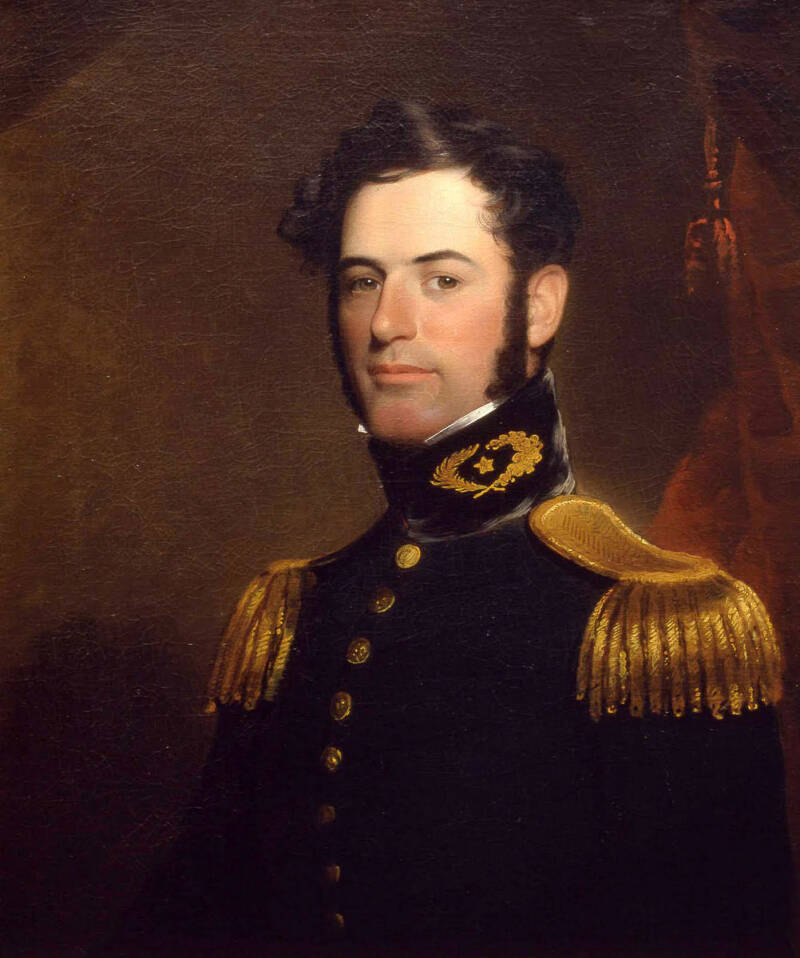
Wikimedia CommonsA portrait of Robert E. Lee, which was painted when he served in the U.S. Army Corps of Engineers. 1838.
Robert E. Lee Day was first created as a legal holiday in 1889 to honor the late general on his Jan. 19 birthday. In Virginia, this holiday later mutated into Lee-Jackson Day — which commemorates both Lee and Thomas J. “Stonewall” Jackson, who was another infamous Confederate general.
Robert E. Lee Day was commonly celebrated until recently in five states — Virginia, North Carolina, Arkansas, Alabama, and Mississippi — in conjunction with Martin Luther King Jr. Day. Today, Lee’s home state of Virginia, as well as North Carolina and Arkansas no longer officially observe the holiday.
This leaves only Alabama and Mississippi celebrating the odd pairing.
In Alabama, celebrating Lee’s life is prioritized over King’s, while Mississippi tends to downplay Lee in official documents.
These two states have celebrated Robert E. Lee Day since the 1800s, and began honoring Martin Luther King Jr. Day in tandem since 1983, when President Ronald Reagan signed the national holiday into law. But how, exactly, did this odd pairing ever come to fruition?
“In states that commemorated Lee, lawmakers who approved of MLK Day didn’t want to create two holidays in January,” Slate’s Jamelle Bouie wrote. “As a concept, it was a poor pairing. As a bureaucratic solution, it worked.”
This “poor pairing” did, indeed, get quite the pushback from citizens and lawmakers alike. Alabama State Rep. John Rogers, for instance, called for a separation of Robert E. Lee Day and Martin Luther King Jr. Day.
“A lot of black folks feel like it diminished Martin Luther King’s day to put it on the same day as Robert E. Lee,” he said.
To understand why much of America’s black population feels that way, one need only look at the Confederate soldier’s life.
The Horrific History Of Robert E. Lee
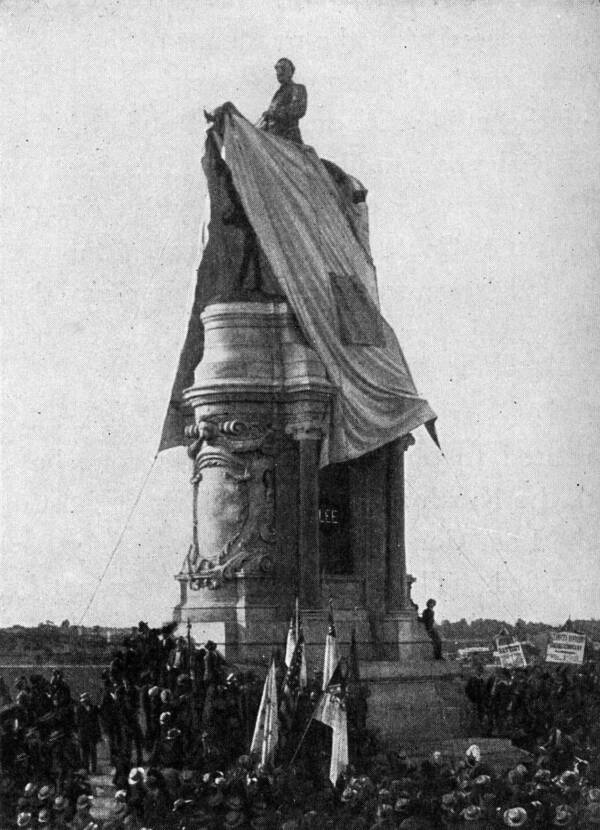
Wikimedia CommonsAn equestrian statue of Robert E. Lee in Richmond, Virginia. Here it is being unveiled on May 29, 1890.
Robert Edward Lee was born into a wealthy family in Stratford Hall, Virginia on Jan. 19, 1807. His attendance at West Point saw the the man graduate second in his class in 1829.
Lee subsequently joined the U.S. Army Corps of Engineers, and married George Washington’s step-great-granddaughter Mary Custis in 1831. His military service truly took off during the Mexican-American War. General Winfield Scott even called Lee “the very best soldier that I ever saw in the field.”
However, Lee eventually ended up fighting for the Confederacy — and by default fighting for the rights of slaveowners. Even more troubling, he inherited nearly 200 slaves of his own from his father-in-law’s will.
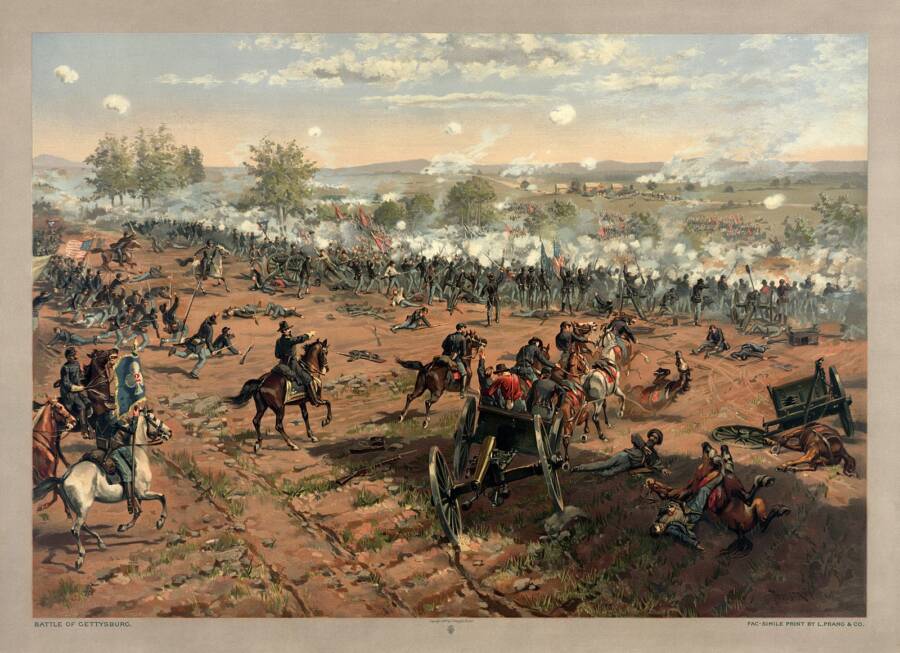
Wikimedia CommonsThe Battle of Gettysburg, depicted by Swedish painter Thure de Thulstrup. Lee fought in this infamous battle, among other notable ones such as the Battle of Antietam.
Historical accounts describe Lee as so combative, harsh, and ruthless toward them that they revolted in response. Lee was also essential in capturing abolitionist John Brown prior to his execution in 1859.
When Virginia seceded and the Civil War broke out in the spring of 1861, Lee became a general in the Confederate Army.
His infamous attempt at invading the North ended up being the bloodiest day in the whole war. The Battle of Antietam on Sept. 17, 1862 ended with around 23,000 casualties. Lee also fought in the Battle of Gettysburg, before ultimately surrendering to Ulysses S. Grant.
On April 9, 1865, America’s violent strife finally came to an end.
Lee died after suffering a stroke at 63 on Oct. 12, 1870. Yet his birthday was still celebrated, and commemorating statues were erected in his honor in various Southern cities. Many of these statues have since been removed — but not without pushback from Lee’s more modern admirers.
“As a Virginian, I understand the drive to praise Lee,” wrote Bouie. “His honor is an undeniable and worthy quality. But we shouldn’t forget what Lee fought for. Not for freedom or liberty, but for perpetual bondage and a South that forever held its black citizens as slaves and servants.”
Opposition Toward Separating Martin Luther King Jr. Day
Though the bill for a national holiday celebrating Martin Luther King Jr. passed in the House and Senate with bipartisan support in 1983 and was signed by a Republican president, not everyone was excited.
Senator Jesse Helms of North Carolina, for instance, ruthlessly denounced the bill on the Senate floor.
His aggressive campaign against the bill included claims that King advocated “action-oriented Marxism,” that he was a communist sympathizer, and that he was someone with “radical political” views. Helms, of course, excluded the extensive problematic history of figures like Lee in his argument.
Lois Horton, professor emeritus of history at George Mason University, explained why people like Helms would be so utterly opposed to giving Martin Luther King Jr. his own holiday.
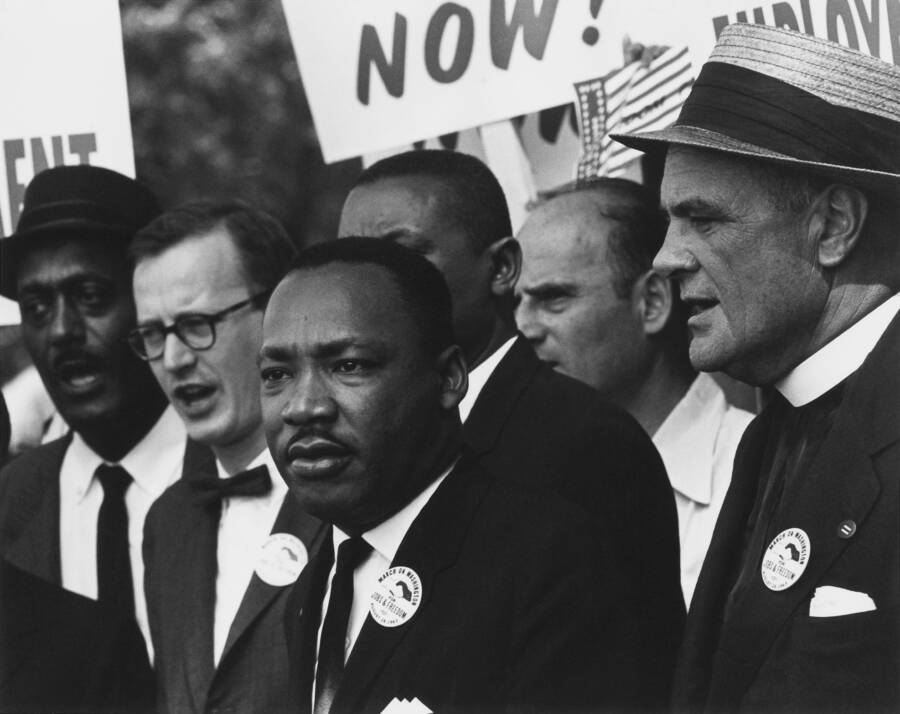
Wikimedia CommonsMartin Luther King Jr. at the 1963 Civil Rights March in Washington, D.C.
“The important thing to remember is that [King’s] reputation, generally, in the country, has changed,” she said. “The FBI had carried on quite a campaign to smear him and to discredit everything he was doing for his whole career.”
The reason why Southern states were originally so opposed to Martin Luther King Jr. Day was simply his ideology of integration. He “was seen as an enemy of things that they believed in,” said Horton.
“It was difficult for them to then change to see him as someone who should be celebrated. I remember in the beginning when they started combining [MLK Day and Lee Day], it was in a way a kind of insult,” said Horton.
She explained that separating the two days is the right step forward, “because they’re celebrating very different phenomena and in some cases contradictory stances, especially on the whole question of race and civil rights.”
In the end, some Americans still live in states that simultaneously celebrate the life and history of a Confederate slaveowner and the world-renowned human rights victories of a slain, beloved leader. The claim that there are two Americas thus sometimes ring truer than not.
After learning about the strange history behind Robert E. Lee Day, take a look at America’s darkest hour in these 39 haunting photos of the Civil War. Then, learn about 20 statues that honor Confederates with dishonorable stories.
